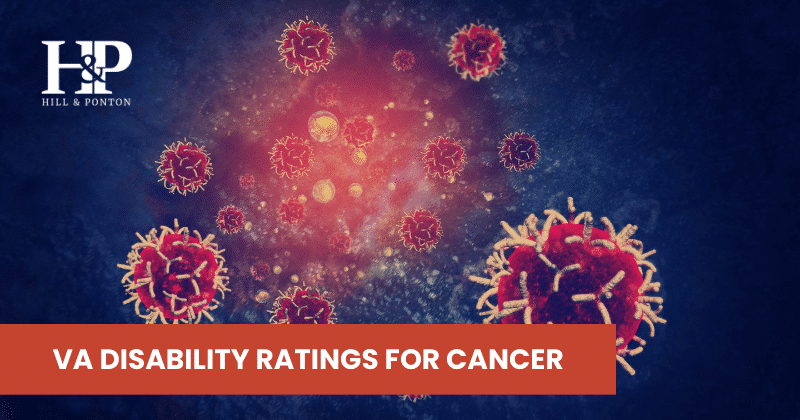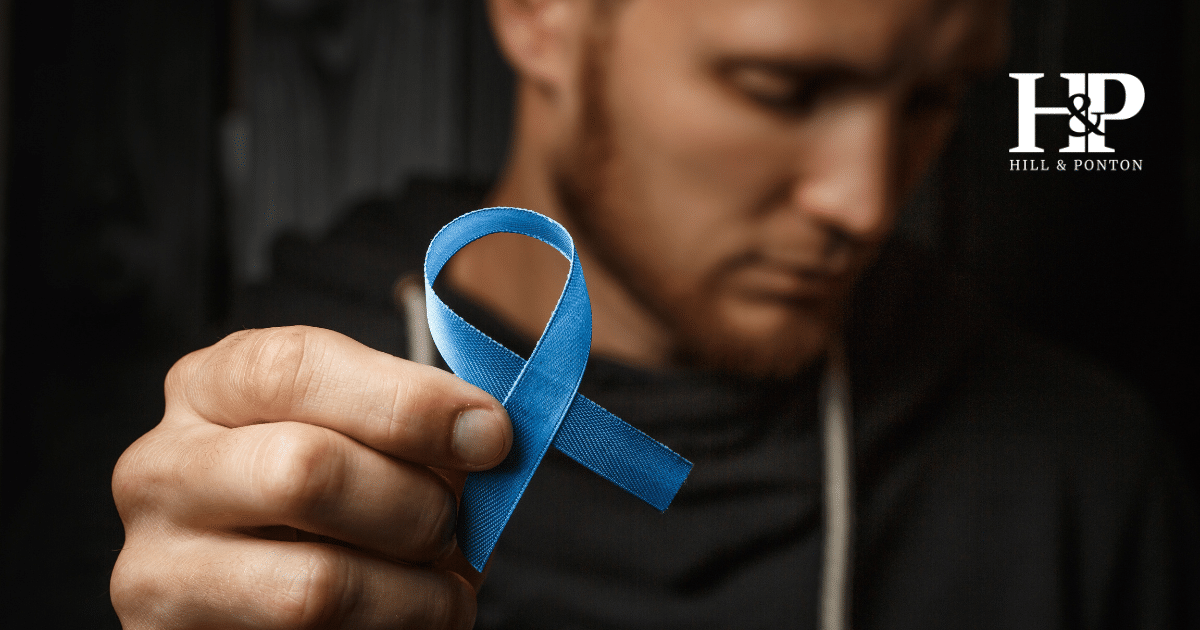This guide aims to provide clarity on what cancers qualify for VA disability benefits, with a focus on the connection between military service and cancer diagnoses. The PACT Act expanded VA benefits for veterans exposed to burn pits, Agent Orange, and other toxic substances during service, which includes many presumptive cancers that have been linked to this exposure.
Service Connection and Presumptive Cancers
The Department of Veterans Affairs defines a service-connected condition as an illness or injury that was caused by, or made worse by, active military service. A presumptive condition is one that has been linked by VA to certain groups of veterans’ military service. These health conditions, including some forms of cancer, are “presumed” to be caused by military service under specific circumstances to qualify for that presumption, especially due to exposure to hazardous materials during that time.
Presumptive cancers
VA considers specific cancer types as presumptive, recognizing their link to a veteran’s military service. Most recently, in January 2025 VA added acute and chronic leukemias, multiple myelomas, myelodysplastic syndromes, myelofibrosis, urinary bladder, ureter, and related genitourinary cancers as presumptive for service-connection for Gulf War and Post-9/11 veterans.
PACT Act Presumptive Cancers
The PACT Act expanded VA health and disability benefits for servicemembers exposed to toxic materials, and those who served in Vietnam, the Gulf War, and post-9/11 eras. In fact, the law added more than 20 presumptive conditions linked to burn pits and Agent Orange. It also added new presumptive-exposure service areas (places and times where a veteran previously served) for Agent Orange and radiation exposure. See below all types of cancer recognized by the VA.
Types of Cancer
Several types of cancer have been linked to toxic substance exposure, including burn pits and Agent Orange. Even if a servicemember does not qualify for a current presumption, they can still access VA benefits by proving direct service connection for a related cancer diagnosis with a strong medical opinion linking his or her service to the current diagnosis.
Cancers Caused by Agent Orange
Presumptive Agent Orange cancers include:
- Bladder cancer
- Chronic B-cell leukemia
- Hodgkin’s disease
- Multiple myeloma
- Non-Hodgkin’s lymphoma
- Prostate cancer
- Respiratory cancers (including lung cancer)
- Some soft tissue sarcomas (excluding Kaposi’s sarcoma)
Who Qualifies?
To qualify for VA disability benefits for Agent Orange-related presumptive conditions, veterans must meet specific eligibility requirements. See our Agent Orange guide here →
Cancers Caused by Burn Pit Exposure
Respiratory cancers, as well as other types, have been linked to chemical exposure caused by burn pits. In 2022, nine rare forms of respiratory cancer were added to the list of presumed service-connected disabilities for veterans who served in the Persian Gulf War (Afghanistan, Djibouti, Syria, and Uzbekistan) or in the Southwest Asia theater of operations after 1989.
Who Qualifies for the VA Presumption?
Veterans Who Served on or After September 11, 2001:
- Presumed to have been exposed to burn pits/toxins in: Afghanistan, Djibouti, Egypt, Jordan, Lebanon, Syria, Uzbekistan, Yemen, and their airspace
- Veterans Who Served on or After August 2, 1990
Presumed to have been exposed to burn pits/toxins in:
- The countries of Bahrain, Iraq, Kuwait, Oman, Qatar, Saudi Arabia, Somalia, UAE, and their airspace
- The regions of the Arabian Sea, Gulf of Aden, Gulf of Oman, Persian Gulf, Red Sea, and Iraq/Saudi Arabia neutral zone
Veterans are encouraged to apply for disability benefits if they have been diagnosed with one of the following cancers (even if a similar claim has previously been denied by VA).
Respiratory Cancers
Squamous cell carcinoma of the larynx
Trachea Cancers
- Squamous cell carcinoma
- Adenocarcinoma of the trachea
- Salivary gland-type tumors
Lung Cancers
- Adenosquamous carcinoma
- Large cell carcinoma
- Salivary gland-type tumors
- Sarcomatoid carcinoma
- Typical and atypical carcinoid
Other Presumptive Cancers
- Brain cancer
- Gastrointestinal cancer of any type
- Glioblastoma
- Head cancer of any type
- Kidney cancer
- Leukemias (acute and chronic)
- Lymphatic cancer of any type
- Lymphoma of any type
- Melanoma
- Multiple myelomas
- Myelodysplastic syndromes
- Myelofibrosis
- Neck cancer
- Pancreatic cancer
- Reproductive cancer of any type
- Urinary bladder, ureter, and related genitourinary cancers
Cancers Caused by Radiation
VA lists these presumptive cancers as linked to “radiation-risk activities” that occurred during military service:
- Cancers of the bile ducts, bone, brain, breast, colon, esophagus, gall bladder, liver, lung, pancreas, pharynx, ovary, salivary gland, small intestine, stomach, thyroid, and urinary tract
- Leukemia (except chronic lymphocytic leukemia)
- Lymphomas (except Hodgkin’s disease)
- Multiple myeloma
Who Qualifies for the VA Presumption?
Veterans who participated in a radiation-risk activity while serving during these missions can apply for benefits:
- Enewetak Atoll (1977- 1980)
- Palomares, Spain (1966)
- Thule, Greenland (1968)
- Nevada and the Pacific Ocean between (1945 – 1962)
OR Underground nuclear weapons testing at:
- Amchitka Island, Alaska (before Jan. 1, 1974)
- Nevada Test Site (for at least 250 days from Jan. 1, 1963, through Dec. 31, 1992)
- Gaseous diffusion plants: Paducah, Kentucky; Portsmouth, Ohio; or K25 in Oak Ridge, Tennessee (for at least 250 days before Feb. 1, 1992)
VA has also recognized that all other cancers, as well as tumors of the brain and central nervous system, may potentially be caused by exposure to ionizing radiation during service. Veterans will however have to service connect them in order to claim VA disability benefits.
Cancers Caused by Water Contamination and Various Toxins
Veterans who served in North Carolina at Marine Corps Base Camp Lejeune or Marine Corps Air Station New River between August 1, 1953, and December 31, 1987, are eligible for disability benefits from VA linked to chemical contamination of drinking water found at the bases.
The following presumptive cancers linked to this chemical exposure have been identified by VA:
- Adult leukemia
- Bladder cancer
- Kidney cancer
- Liver cancer
- Multiple myeloma
- Myelodysplastic syndromes
- Non-Hodgkin’s lymphoma
Non-presumptive Cancers
Exposure to AFFF or other toxins can also result in cancer, but the Department of Veterans Affairs requires establishing service connection to obtain a VA rating and disability benefits. Find out more about AFF disability claims here.
Cancers Caused by Asbestos and Occupational Hazards
VA has identified two cancer types caused by asbestos exposure during military service: lung cancer and mesothelioma (affecting the lining of the lung). It has been reported that veterans who served in Iraq and other areas in the region could have been exposed to asbestos, in addition to servicemembers who performed specific types of jobs, including mining, shipyards, demolition, and construction.
However, these cancers are not considered presumptive conditions and veterans will have to provide a nexus to prove their case.
What Is the VA Disability Rating for Cancer?
VA assigns a 100% disability rating to cancer while it’s active and undergoing treatment (such as radiation, chemotherapy or surgery). The 100% rating continues for 6 months after the treatment is completed. Once that 6-month period ends, you’ll need to have a VA examination to assess your current condition. A new rating will be assigned depending on the results of the exam. If the cancer is in remission, VA will reduce the rating – the percentage will be based on the residual effects of the cancer.
Getting a VA Rating for Cancer
Veterans who meet the criteria may qualify for VA disability benefits when they apply through the VA claims process. To receive a VA disability rating for cancer, the claim must show that the veteran’s cancer is connected to, or in many cases caused by, the military service.
(For presumptive cancers, the veteran must only meet the specific service requirements outlined by VA for the presumptive condition – usually a time and/or place of service.)
Here’s what you’ll need to get your claim started:
- A current diagnosis from your doctor
- Description of the events that led to the cancer
- A statement from your doctor confirming that the cancer was more likely than not caused by your time in the service
Screening and Diagnosing Cancer
Today, toxic exposure screenings are available at VA health facilities. When veterans access VA health care, they receive a screening at enrollment, and follow-up screenings every five years. Even if a veteran is not enrolled in VA health care, they can get a toxic exposure screening from VA if they think they were exposed during their military service to:
- Open burn pits or other airborne hazards
- Agent Orange
- Radiation
- Contaminated water from recognized locations such as Camp Lejeune
Toxic exposure can also come from:
- Sand and dust
- Particulates
- Oil well or sulfur fires
- Chemicals
- Warfare agents
- Depleted uranium
- Herbicides
- Other occupational hazards
C&P Exam for Cancer
A Compensation & Pension (C&P) exam is the VA’s way of clarifying what your doctor has to say about your condition. It is not meant to help you alleviate or treat your disorder, but to qualify certain statements and have a second opinion on record by a certified VA health professional.
You’re usually asked to complete a C&P exam after submitting all your paperwork through the VA Regional Office (RO). In some cases, the RO may still want you to see a VA doctor, especially if you’re filing for a secondary service connection. During the exam, the doctor may take a biopsy of your tumor, draw blood, and ask general questions about your time in the military.
Please note that the cause of your cancer could be at any point while you were in the service. You do not necessarily need to have been on base and on active duty to qualify. If you were exposed to a toxin during your free time, you can still file for a primary service connection.

How to Claim VA Disability for Cancer Step by Step
The process required to receive VA disability is long and often overwhelming. This free guide can help veterans obtain the maximum cancer rating they qualify for and secure the benefits they deserve.





